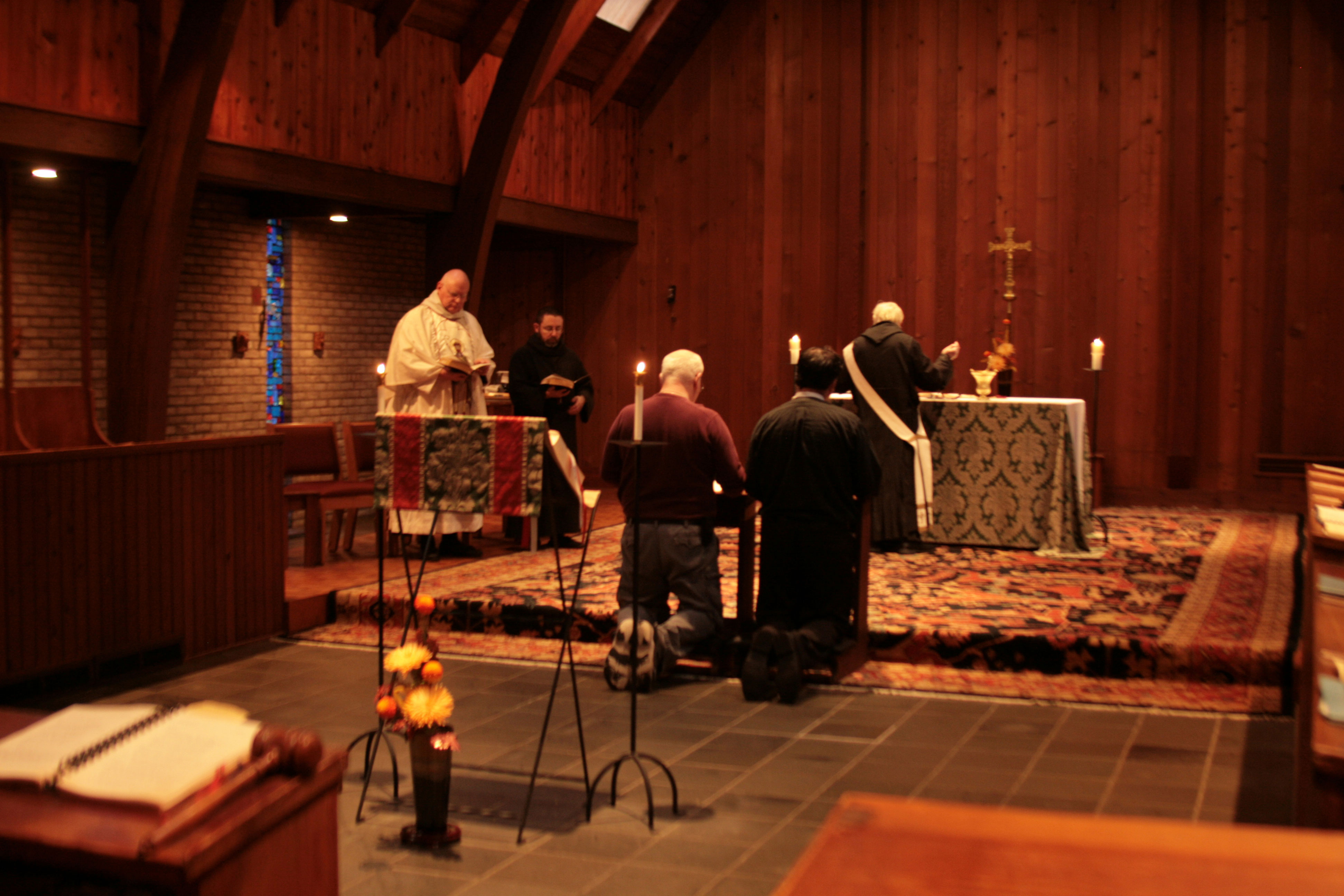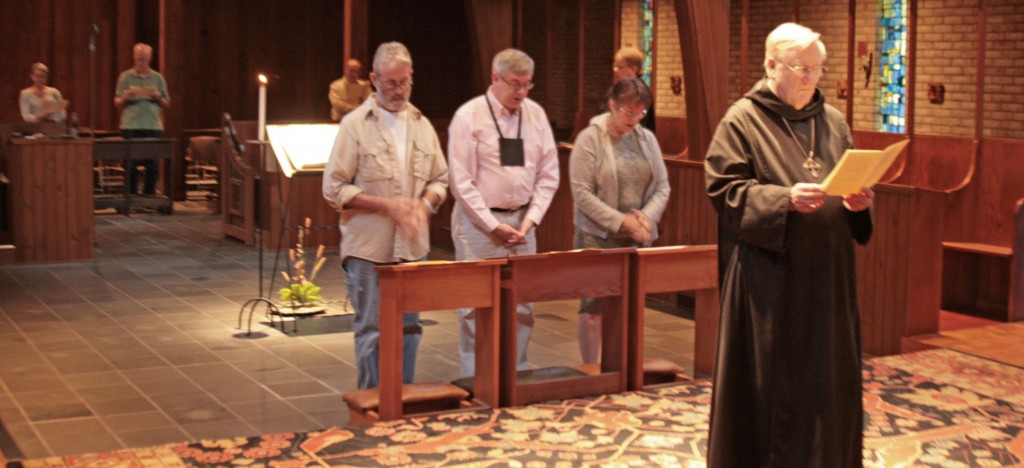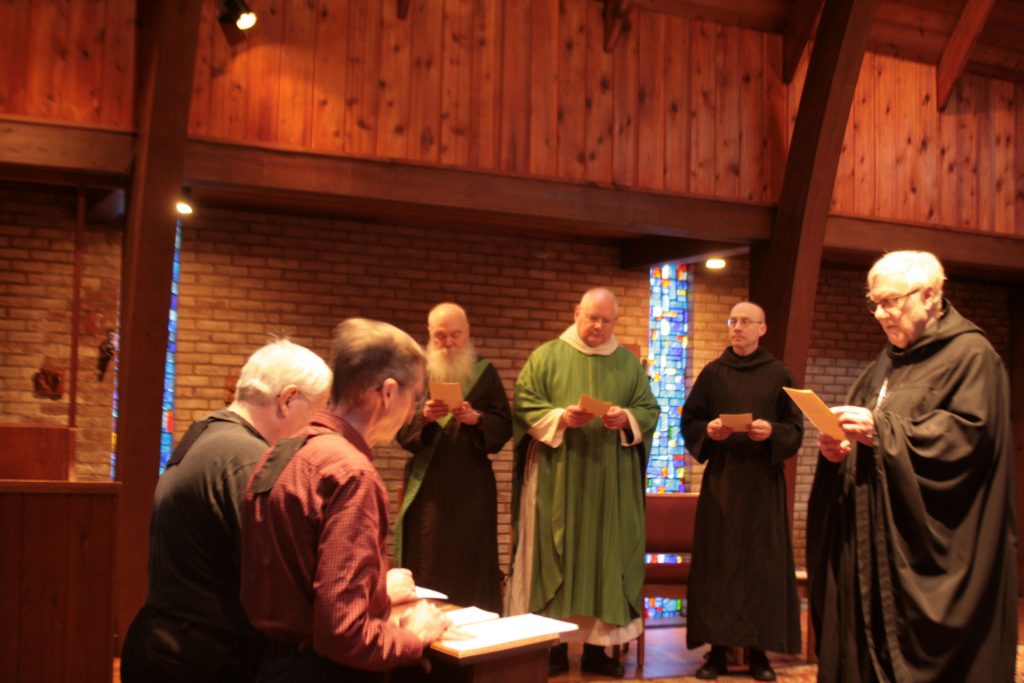
St. Gregory’s Abbey has a Confraternity which offers an official connection to the Abbey and is open to anyone who wishes to join. Although we do not make large demands on members of the Confraternity, we hope that our Confraters will be seriously interested in incorporating Benedictine principles in their lives. We also ask that Confraters remain in contact with the Abbey at least occasionally. Guidelines for how membership in the Confraternity may affect one’s spirituality are given below. Anyone who wishes to join the Confraternity is welcome to write the Abbot and ask for an application.
St. Gregory’s Abbey also has an oblate program, but we have only a few oblates. Ours are men and women whose oblate status is the outcome of a long period of personal association with Abbey. In that period, we look for signs of sustained commitment to a Benedictine rule suitable to the candidate’s state of life, since an oblation entails the making of public promises to live by an oblate rule for life. Since we are a small community, we feel that we can take responsibility for only a small group of oblates. Sustained active membership in the Confraternity is a prerequisite for consideration as an oblate.

Guidelines for the Confraternity of St. Gregory’s Abbey
The following guidelines are not a piece of legislation, but an invitation to our Confraters to base their lives on the principles of St. Benedict’s Rule. May these practices open our hearts and minds to the love of God.
Worship
Participation in corporate worship is fundamental to Benedictine spirituality. Regular reception of the Holy Eucharist and recitation of the daily office are the basic acts of worship. The Psalter is of special importance in nurturing our prayer in solidarity with the rest of God’s people.
Reading of Scripture
The prayerful reading of scripture allows us to ground our lives in the revelation of God. By reflecting on our own human experience in the light of God’s Word, we open ourselves to growth in God. We need not cover many verses of scripture each day. We need to allow the verses we read to sink deeply into our hearts and become the seeds for amendment of life.
Work
Our work is not an activity that interrupts prayer. Work gives us the opportunity to ground our prayer in the reality of the world and in service to others. We work most prayerfully by paying close attention to the tasks at hand and to the people affected by our work.
Study
We perform our work most effectively if we gain the practical knowledge required for that work. We enrich our lives and deepen our spirituality by reading books that help us explore human experience and our relation to God. We should also be open to what we can learn from the fine arts, the media, and other people. We should connect our study with the reading of scripture.
Moderation
We should seek a balance between denial of the world and overindulgence in what the world offers us. For example, we should eat enough food for our nourishment, but not too much. Stewardship of goods is the most important form of discipline in the use of material goods. We should be equally attentive to our physical, emotional, and spiritual needs. We also need to be as attentive to these needs of other people as we are to our own. We fulfill our duties and deepen our serious pursuits by allowing time for recreation as well.
Community
We can grow in Christ only through our involvement with other people. We need to take time to share our lives with our family, friends, colleagues and strangers. We should be alert to ways that we can share their joys and sorrows. We should also be open to sharing our joys and sorrows with others. We practice hospitality by welcoming others into our lives. We practice obedience through serving the deepest needs of the people in our lives.
Silence
In addition to giving time to other people, we need to make time to be alone with God. By gently turning aside our human words as they come to us, we become free to listen to God’s presence within us. This is not the time for us to accomplish anything. This is the time for us just to be with God. In silence, we deepen our awareness of ourselves, of our relations to other people, and of God. This deepening awareness is the path to humility.
Conversion
Conversion of life is a commitment to allowing God to strengthen us by grace each day. Our daily practice of worship, work, study, and our relationships with other people all contribute to deepening our conversion to God.
November 1991
Abbot Andrew Marr
E-mail Abbot Andrew
